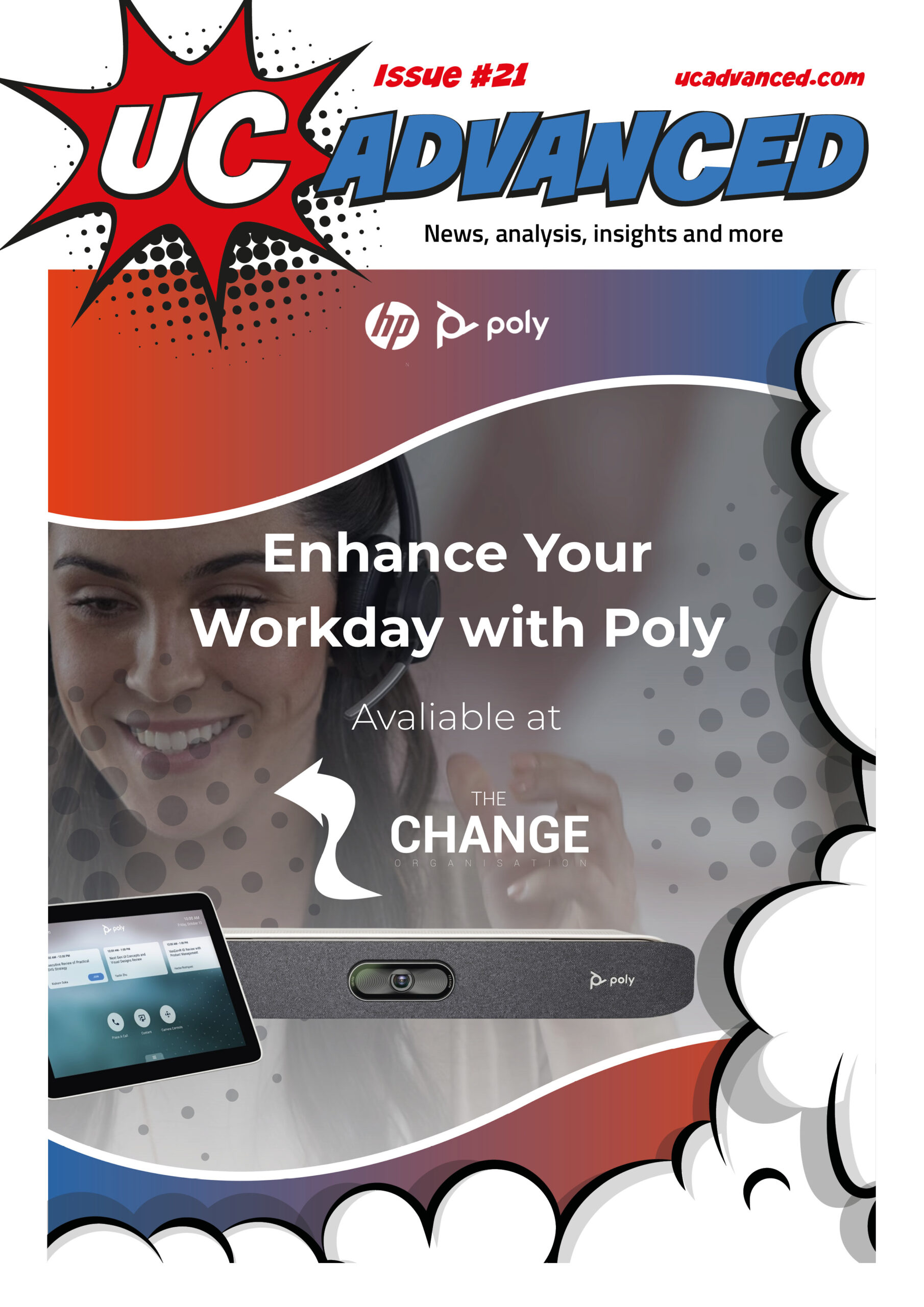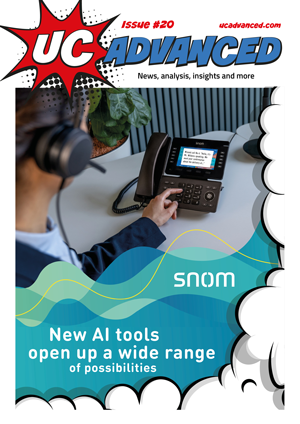How does mobile fit into the collaboration puzzle?
One of those universal experiences we share is turning up for the first day of a new job.
Along with getting to the office before most of your new colleagues, taking a seat and waiting for someone to tell you what to do, a common activity for the first day is to take a trip to the IT department and get the technology you’ll need in your new role.
In years gone by, a work phone would be one of the first things that you’d be given, along with a laptop, a handful of accessories, and a bag to carry it all in if you were lucky.
But in the age of collaboration platforms for internal communications, video conferences for business-to-business meetings, and VoIP for customer interactions, the mobile phone could, in theory, be redundant.
However, that school of thought was quickly shut down by Kristian Torode, Director of Business at mobile provider Crystaline, who said that there is a place for mobile in modern businesses, and we’ve grown accustomed to the benefits of mobility for a long time.
“The real rise of business mobile took place with the insurgence of BlackBerry,” said Torode. “Its encrypted messaging function, BlackBerry Messenger, or BBM, introduced the concept of business mobiles into many companies, providing a secure way to communicate outside of the office.
“The ‘businessman’s best friend’ offered many of the features we see in modern unified communications (UC) systems, such as file sharing and the option to create groups. Mobile communications have continued to flourish since then, with almost 60 per cent of business leaders claiming their smartphone is the device they use most to run their operations.
“However, recent years have seen decreasing investment in dedicated business mobiles. Instead, there has been a move toward ‘bring-your-own-device’ (BYOD) policies, wherein employees use their smartphones for business communications. BYOD offers both cost and time-saving benefits, as employees are able to use an interface they are already familiar with. The rise of UC systems combining voice, messaging, video and file sharing that can be downloaded across multiple devices also facilitates the move to BYOD.”
Enhancing Productivity
As businesses slowly modernise telephony, the question of who needs a smartphone from the company and who can make do with their personal device will cross the minds of business leaders.
Work modes and profiles for businesses have been features that employees can set up for getting on for a decade, and the savings businesses can find will also be enticing for some of those in the finance department.
Ash Miri, Founder of Air Landline, said that the advantages of business mobiles should not be limited to certain types of employees. Whether employees bring their own device or the business hands one to them, these devices contribute to productivity.
“Ultimately, mobile comms facilitate smooth and seamless collaboration and communication between remote workers, office-based employees, clients and customers.
“This flexibility enhances productivity and ensures that work can continue uninterrupted, even when employees are not physically present in the office.”
“While field agents certainly benefit from mobile technologies for tasks like accessing customer data, managing schedules, and communicating with headquarters, the need for mobile communication extends to all employees in hybrid work environments. Whether employees are working from home, on the go, or in the office, mobile devices serve as essential tools for staying connected and productive.”
Balancing Act
While the finance department may welcome employees bringing their own devices, employees’ reactions to the policy may be slightly different.
As Torode points out, BYOD schemes can feel a little intrusive to employees, especially those who are keen on maintaining a good work-life balance.
“Mobiles purchased solely for business purposes can result in better work-life balance for staff,” said Torode. “While BYOD policies have somewhat lifted the taboo on using smartphones during work hours, they can also have negative effects.
“Expecting employees to use their own handset can lead them to feel as though they must be contactable outside of their scheduled working hours, even if that is not stipulated within their contract.
“As a result, this could cause issues when trying to attract and retain Gen Z and millennial employees. Data suggests that younger workers place a higher importance on work-life balance when compared to previous generations, with recent studies showing performance improves as a result of better work-life balance.
“Having a dedicated work handset that can be switched off outside of working hours therefore helps to create a culture where employees are satisfied and productive.”
New Conditions
While there are numerous benefits of mobile telephony, businesses will be wanting value for money too.
“Attracting new customers presents a greater challenge for business mobile providers than it once did,” said Torode. “According to data from GfK UK’s Tech360 survey, a quarter of Brits who purchased a new device in 2023 opted for a second-hand or refurbished model.
“With longer replacement cycles now the norm, the research shows that consumers will only purchase a new device if the features offered are innovative enough. Given the increasing cost pressures facing SMEs, it is likely that this attitude will hold true for many businesses too.
According to Miri, convenience is the top concern of businesses when deciding to offer Mobile services to their employees.
“Mobile customers are continually seeking innovations that enhance convenience, security, and efficiency,” said Miri.
“This includes things like virtual landline numbers like Air Landline, responsive customer service options and professional voicemail services, solutions that enable real-time collaboration like document sharing, technologies such as biometric authentication, and seamless integration with other systems.
“I think most of all mobile customers want these innovations without huge extra cost.”
Adding Value
Torode added that businesses will still be looking for features that will help them to be productive.
“Many business customers will be looking for 5G-ready devices. With speeds up to ten times faster than 4G connectivity, 5G allows for faster downloads and reduced latency. This means that employees can access a better connection regardless of whether they are working from the office, from home or on the go, improving collaboration and flexibility.
“5G also offers increased capacity, meaning as many as one million devices per square kilometre can connect to the network. For businesses located in bustling city hubs or those operating at large-scale festivals and events, 5G is a necessity.
“Moreover, as each of the ‘Big Four’ mobile operators of Three, O2, Vodafone and EE are currently phasing out their 3G services, a 5G-ready handset allows businesses to futureproof, avoiding the need to repurchase when their current mobile setup becomes obsolete.”
Outside of 5G, value-adding solutions like monitoring are also popular, according to Torode.
“Aside from the hardware offering, providers can also offer Mobile Device Monitoring (MDM) software for customers that employ BYOD policies within their business. Designed to be installed onto individual personal handsets, MDM packages allow IT administrators to remotely enforce security updates, as well as removing company data from lost or stolen devices.
“Offering an MDM service means that providers can attract customers who may not be in a financial position to take out a contract for dedicated business handsets, but still want to benefit from the flexibility and communication advantages business mobile offers.”
Making the Sale
For the reseller, these value-added services are fundamental to finding sales, according to Torode, who said that a consultancy-style relationship should be the goal.
“In order to remain competitive, resellers should consider how mobile can be offered as part of a wider business comms package. At Crystaline, we also provide a range of business broadband and leased line connectivity services, VoIP packages and Internet of Things (IoT) solutions.
“We find that customers are attracted to our ‘one-stop-shop’ solution, as it saves time since they only have to contact one provider in the case of service issues or outages. Additionally, this means business owners have less licences and contracts to manage and renew.
“Providers should also consider highlighting the cost-saving benefits of business mobile plans. For example, while personal mobile plans vary in data allowance, business plans can offer a shared pool for employees. This feature not only improves flexibility but can also reduce costs, as businesses avoid paying for data they do not use.
“According to a recent KPMG survey, over 60 per cent of executives believe that managing the risks of digital investment at the early stages can help ensure it is implemented successfully, so resellers should consider providing consultancy services to help customers know if a new business mobile setup will suit their communications needs.”










